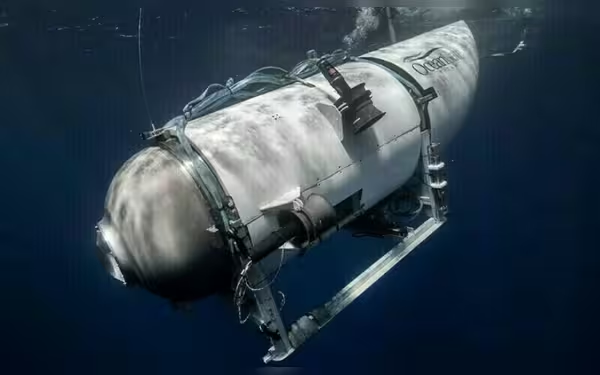Saturday, November 16, 2024 08:49 PM
Titan Submersible Tragedy: Key Testimony Reveals Pre-Dive Malfunction
- Titan aborted dive due to valve malfunction.
- Stockton Rush lost life in tragic implosion.
- Nargeolet's family sues OceanGate for negligence.
 Image Credits: dawn
Image Credits: dawnTestimony reveals Titan submersible's pre-dive malfunction, leading to tragic implosion and loss of five lives.
In June 2023, the world was shocked by the tragic implosion of the Titan submersible, which claimed the lives of five individuals exploring the wreck of the Titanic. This incident has raised numerous questions about safety protocols and operational procedures in deep-sea exploration. Recent testimony from Steven Ross, a former scientific director at OceanGate, the company behind the Titan, has shed light on critical events leading up to the disaster.
According to Ross, just days before the fatal dive, the Titan had to abort a mission due to a valve malfunction. This malfunction caused significant distress among the passengers, as at least one individual was left hanging upside down inside the submersible. Ross described the situation as chaotic, stating that the submersible tilted at a 45-degree angle when it surfaced, making it difficult for passengers to maintain their balance. He emphasized that "there’s nothing to hold on to inside this submersible," which contributed to the discomfort experienced during the incident.
The pilot of the Titan during that ill-fated dive was Stockton Rush, the CEO of OceanGate, who tragically lost his life in the implosion. Ross recounted how Rush "crashed into the rear bulkhead," causing the other passengers to tumble around in the cramped space. Fortunately, no one was injured, but the experience was described as "uncomfortable and unpleasant," taking over an hour to rectify the situation.
On June 18, 2023, Rush and four other passengers embarked on a journey to observe the Titanic wreck. However, contact was lost less than two hours into the dive, prompting a massive rescue operation. Initially, there was hope that the Titan had merely lost power and was drifting in the ocean. Sadly, it was later confirmed that the submersible had suffered a catastrophic implosion, leading to the immediate death of all aboard.
The victims included Pakistani-British businessman Shahzada Dawood and his son Suleman, British explorer Hamish Harding, and French submarine expert Paul-Henri Nargeolet. In the aftermath of the tragedy, Nargeolet's family has filed a lawsuit against OceanGate, seeking $50 million in damages for alleged negligence.
The debris from the Titan was discovered approximately 500 meters from the Titanic's bow, which lies about 400 miles off the coast of Newfoundland, Canada. The Titanic itself met a tragic fate in 1912 after hitting an iceberg during its maiden voyage, resulting in the loss of over 1,500 lives.
This incident serves as a stark reminder of the inherent risks associated with deep-sea exploration. As technology advances, it is crucial for companies like OceanGate to prioritize safety and ensure that all necessary precautions are taken to protect those who venture into the depths of the ocean. The loss of lives in such tragic circumstances should not be in vain; it must lead to improved safety measures and regulations in the field of underwater exploration.













